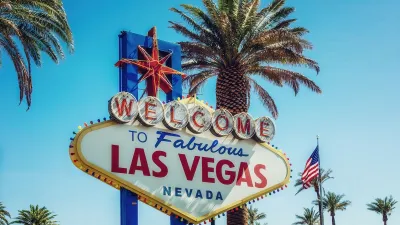The Chinese coastal city of Macau has passed Las Vegas as the biggest gambling city in the world. This article from Smithsonian Magazine looks at how it got there.
"This 11-square-mile outpost on the Pearl River Delta is the only entity on the Chinese mainland where gambling is legal. And now, almost ten years after shedding its status as a vestige of Portugal's colonial past and re-entering China's orbit, Macau is winning big. 'In 2006 Macau surpassed Las Vegas as the biggest gaming city in the world,' says Ian Coughlan, Wynn Macau president. 'More than $10.5 billion was wagered [last year], and that's just the tip of the iceberg.'"
"But in 1999, the year Portugal formally handed administration of Macau back to the Chinese, the city became a "special administrative region," like Hong Kong after the British turned it over two years earlier. The designation is part of China's policy of "one country, two systems," under which it allows the newly reunited entities autonomy over their own affairs, except in foreign policy and national defense. In 2002, the new Macau government ended Ho's 40-year gambling monopoly and allowed five outside concessionaires, three of them American, to build competing resorts and casinos that would both reflect-and accommodate-China's growing wealth and power. Beijing also made it easier for mainland Chinese to enter Macau."
FULL STORY: Macau Hits the Jackpot

Study: Maui’s Plan to Convert Vacation Rentals to Long-Term Housing Could Cause Nearly $1 Billion Economic Loss
The plan would reduce visitor accommodation by 25,% resulting in 1,900 jobs lost.

North Texas Transit Leaders Tout Benefits of TOD for Growing Region
At a summit focused on transit-oriented development, policymakers discussed how North Texas’ expanded light rail system can serve as a tool for economic growth.

Why Should We Subsidize Public Transportation?
Many public transit agencies face financial stress due to rising costs, declining fare revenue, and declining subsidies. Transit advocates must provide a strong business case for increasing public transit funding.

How to Make US Trains Faster
Changes to boarding platforms and a switch to electric trains could improve U.S. passenger rail service without the added cost of high-speed rail.

Columbia’s Revitalized ‘Loop’ Is a Hub for Local Entrepreneurs
A focus on small businesses is helping a commercial corridor in Columbia, Missouri thrive.

Invasive Insect Threatens Minnesota’s Ash Forests
The Emerald Ash Borer is a rapidly spreading invasive pest threatening Minnesota’s ash trees, and homeowners are encouraged to plant diverse replacement species, avoid moving ash firewood, and monitor for signs of infestation.
Urban Design for Planners 1: Software Tools
This six-course series explores essential urban design concepts using open source software and equips planners with the tools they need to participate fully in the urban design process.
Planning for Universal Design
Learn the tools for implementing Universal Design in planning regulations.
City of Santa Clarita
Ascent Environmental
Institute for Housing and Urban Development Studies (IHS)
City of Grandview
Harvard GSD Executive Education
Toledo-Lucas County Plan Commissions
Salt Lake City
NYU Wagner Graduate School of Public Service



























